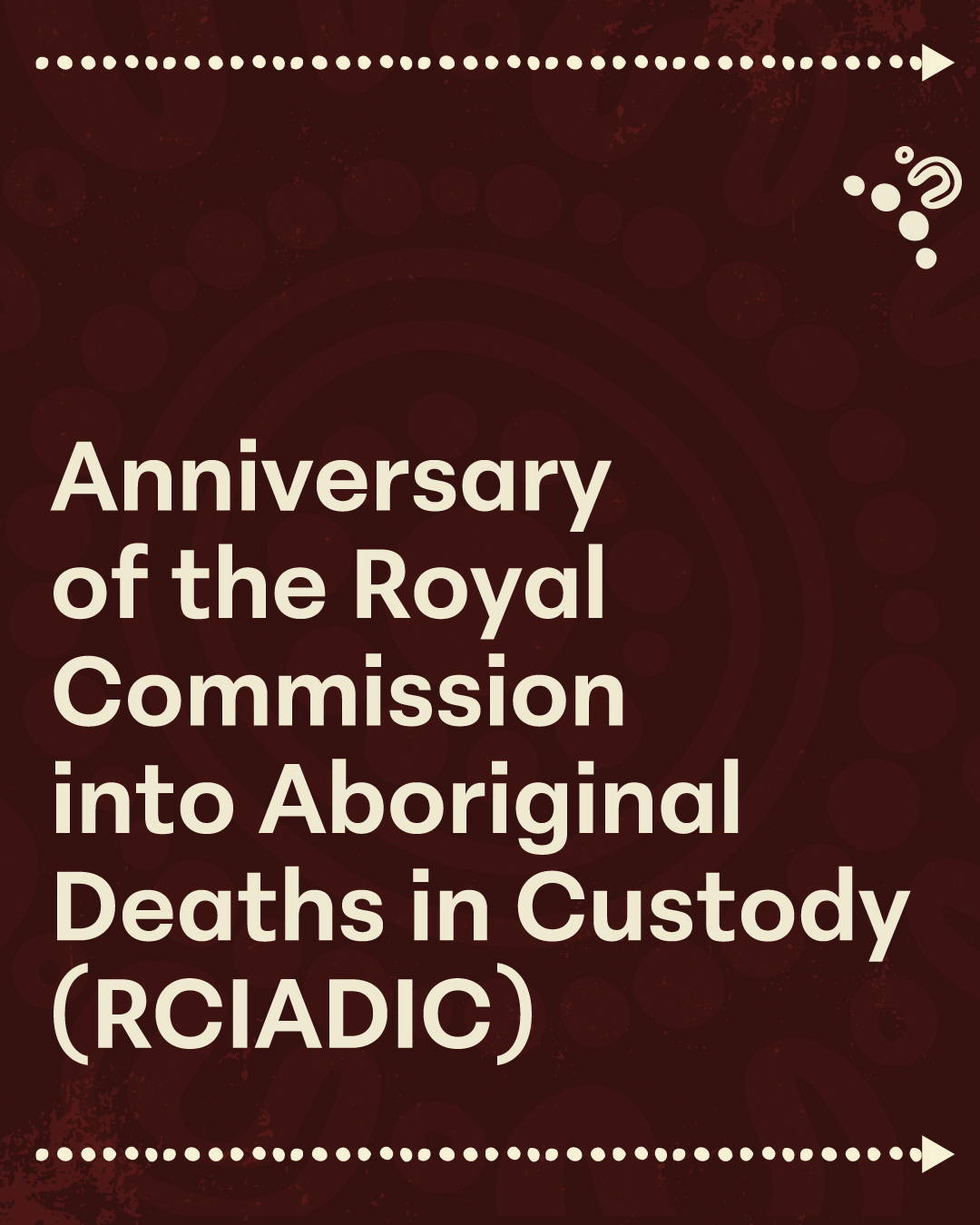Reflecting on the Royal Commission into Aboriginal Deaths in Custody
Community
Reflecting on the Royal Commission into Aboriginal Deaths in Custody
April 19, 2024
by Madeline hayman-reber
This week, we reflect on the 37 years since the Royal Commission into Aboriginal Deaths in Custody (RCIADIC).
This is a heart-breaking mark on our nation’s history that still remains today. Though many grassroots-led organisations continue to pave the way to advocating for equality, such as The Dhadjowa Foundation, we still have a long way to go.
What did the investigation uncover?
In 1987 the Royal Commission into Aboriginal Deaths in Custody was established to investigate the alarming rates of which First Nations people were dying in custody.
After examining 99 cases spanning from 1980 to 1989, it uncovered the need for reform across many systemic issues such as institutionalised racism and inadequate healthcare within the Australian justice system.
At its completion, 339 recommendations were handed down, however despite many being implemented, little has changed, and many have not been implemented by both state, territory, and federal governments.
Current status
Most recently, according to the Australian Institute of Criminology there were 110 deaths in custody from 2022 - 2023 and 31 of those people were Indigenous.
In 2017, the then Minister for Indigenous Affairs Nigel Scullion enlisted Deloitte Access Economics to conduct an independent assessment of the progress made in implementing the recommendations of the Royal Commission into Aboriginal Deaths in Custody.
The final review found that although First Nations people didn't experience a higher mortality rate in custody compared to non-Indigenous counterparts, there were disproportionately more deaths among Indigenous peoples due to their over-representation in the justice system.
The final findings were that:
- 78% of recommendations have been fully or mostly implemented
- 16% have been partially implemented, and
- 6% have not been implemented.
The National Close the Gap Agreement has pledged to reduce incarceration rates for First Nations people by 2031. However, according to the latest statistics released by the government in March this year, just five of the 19 targets are on track. Sadly, reducing incarceration rates isnot one of those five.
Yarn Marketplace stands with the families of these victims, and we hope we can do our bit to encourage economic opportunity to marginalised communities across the country.
If you or a loved one requires support, there are several First Nations-led organisations you can reach out to, including:
- The Dhadjowa Foundation
- Aboriginal Legal Service
- 13YARN
- Your local Aboriginal healthcare service
Love Our Blogs? Read More Articles Now!
Yarn Blog is here to bring you the latest and greatest in First Nations culture, news and shopping. You can find updates on all our best products as well as info about our fantastic collaborating artists right here. Click below to start reading more of our exciting posts!







